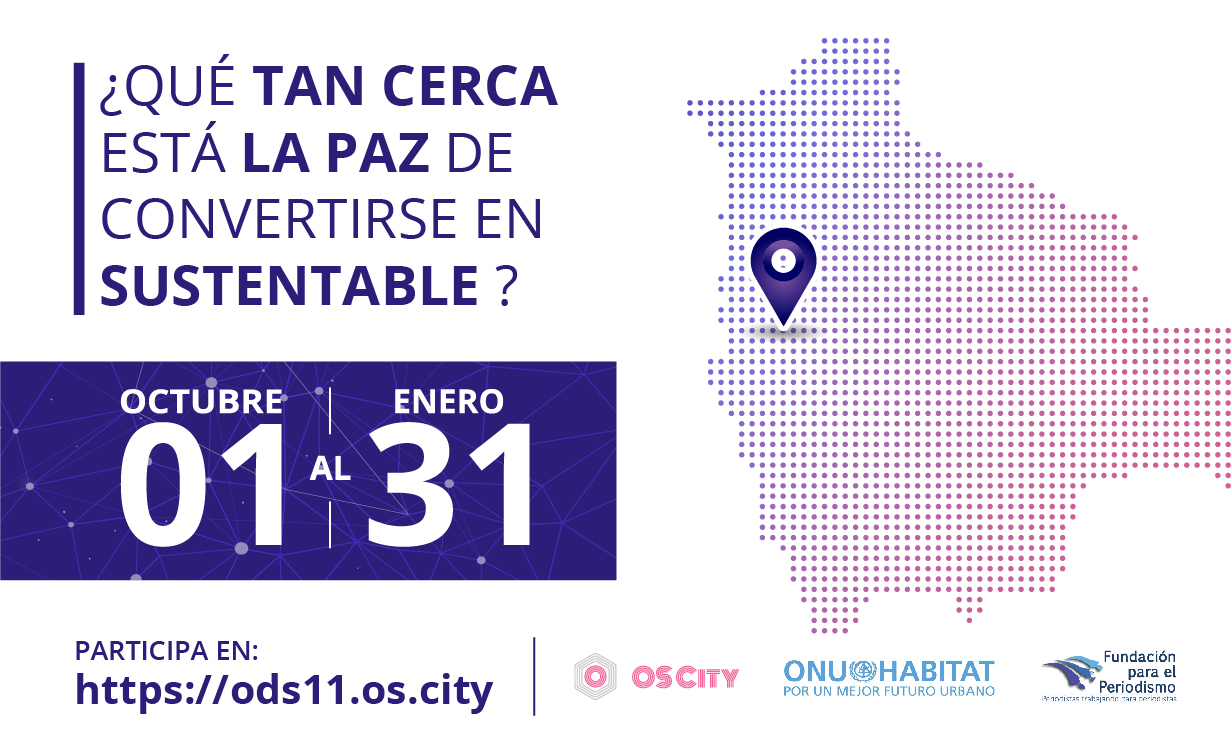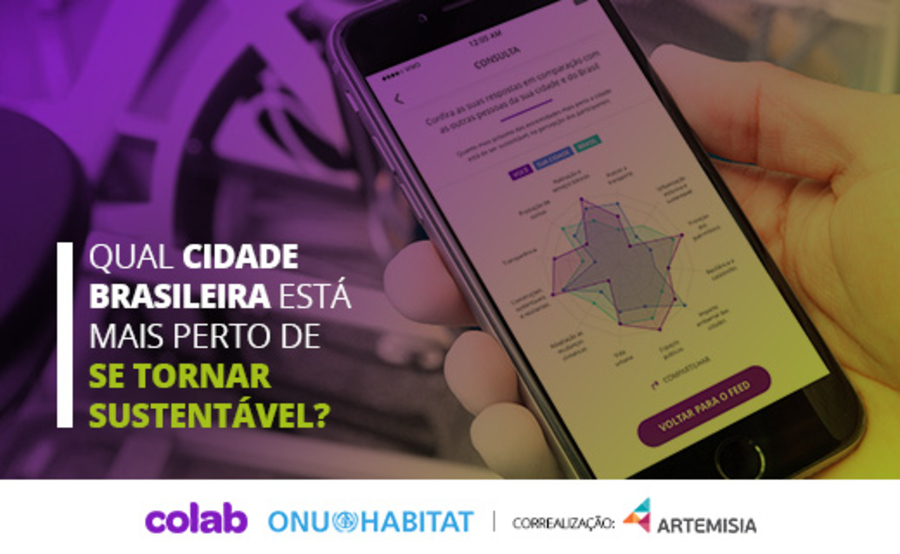UN-Habitat seeks citizens’ views on their cities in Brazil, Peru and Bolivia
Nairobi, October 2019 - UN-Habitat has launched a citizen consultation on 1 October 2019 through an innovative and participatory tool in the cities of Chimbote, Trujillo, Barranco and Miraflores (Peru) and Tarija and La Paz (Bolivia), while the consultation in Brazil is held nation-wide for a second consecutive year.
The ‘Sustainable Cities and Communities Consultation’, as part of the greater project ‘Accountability Systems for Measuring, Monitoring and Reporting on Sustainable City Policies’ aims to gather the views of the citizens on the current status of their cities and the progress of the implementation of sustainable urban policies.

“It is fundamental to listen to the population and capture their ideas about how their city is evolving towards SDG11 and allow more accurate and collective analysis of the reality of Brazilian cities”, said Claudio Acioly, Head of Capacity Development Unit of UN-Habitat, before the launch of the first consultation in Brazil. The consultation involves a survey on the indicators of the Sustainable Development Goal 11 (SDG 11) and capacity building and ensures dialogue between the citizens, civil society organizations and local governments. The results assist decision-makers in creating policies that are more responsive to the challenges of urbanization and reflect the needs and perception of city inhabitants.
In Bolivia and Peru, the mobile application was developed by OS City, a Mexico-based start-up that uses technology to detect the needs of cities and gather large amounts of data to build sustainable cities and improve decision-making in an inclusive and participatory manner. Other partners of the project include Foro Ciudades para la Vida (Peru) and Fundación para el Periodismo (Bolivia).
The mobile application for the consultation in Brazil was developed by Colab, a Brazil-based tech start-up and citizen-to-government engagement platform that offers a social network for citizens, focused on issue reporting, urban improvement suggestions and public services evaluations, as well as participation in the decision-making process. The application was first used in a nation-wide consultation held from October 2018 to February 2019, reaching nearly 10,000 respondents in 829 Brazilian cities, the results of which were presented at the UN-Habitat Assembly in May 2019.

The consultation through citizen engagement contributes to strengthening bottom-up accountability and transparency processes, which are inevitable components of an efficient public management. The consultations have the potential to guide local authorities and policy-makers in enhancing public policies and public management according to the needs and interests of the citizens with regards to urban development and sustainability. As Igor Hemmings, a young manager and a participator of the consultation has put it, “there is no better source for a city diagnosis than the citizens who live in that city”.
The objective of the consultation is threefold, including:
I. to bridge the communication gap between public authorities and the citizens;
II. to optimize limited resources through innovative consultative processes to scale up citizen participation to capture their views on the effectiveness of public policies that affect their lives;
III. to raise citizens’ awareness on the 2030 Agenda for Sustainable Development through technology and innovation.
The applications, developed by the Latin American start-ups, available both on mobile devices and computers, “ensure that the dialogue with the population happens quickly and efficiently and allows the results of this conversation to be measured, which facilitates the evaluation of public managers”, said Gustavo Maia, co-founder and CEO of Colab.
This way, new channels of communication that involve citizens in decision-making can generate and validate a significant amount of data and information on policies and their results on the ground. The data gathered from the consultation is later cross referenced with official data from other national and international institutions to track the status of cities with regards to their progress towards the achievement of SDG 11 and other related SDGs.
The initiative was developed by the collaboration of UN-Habitat and the Economic Commission for Latin America and the Caribbean (ECLAC) and funded by the United Nations Development Account.
All residents of the aforementioned cities are invited and encouraged to participate in the consultations, which are accessible until 31 January 2020. To apply, please visit the Colab and OS City websites.
For further information about the consultations in Brazil, Bolivia and Peru, please contact Claudio Acioly, Head of Capacity Development Unit of UN-Habitat on claudio.acioly@un.org and visit the report on the consultation in Brazil (2018) in Portuguese here.
